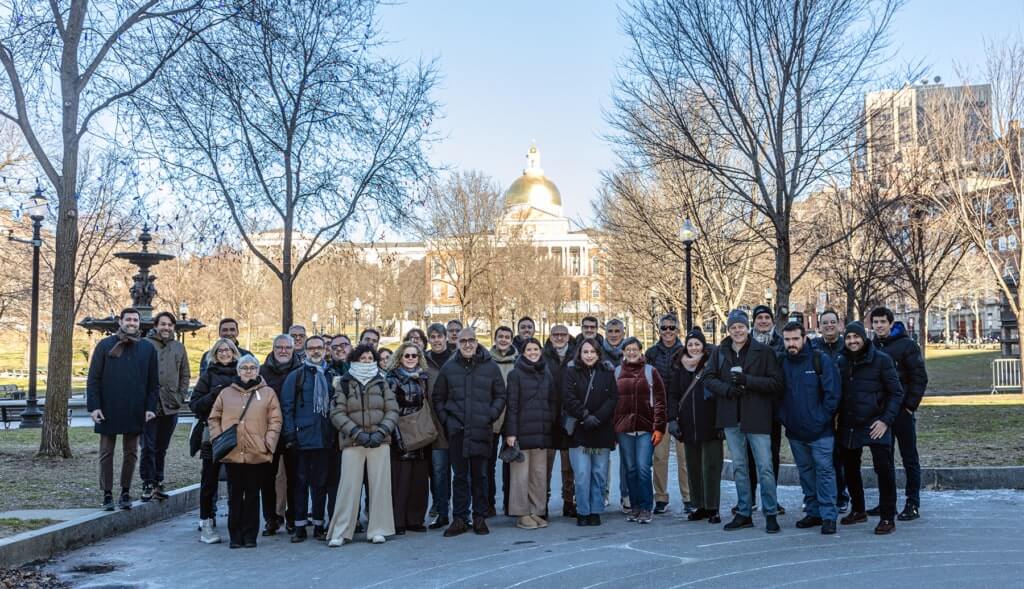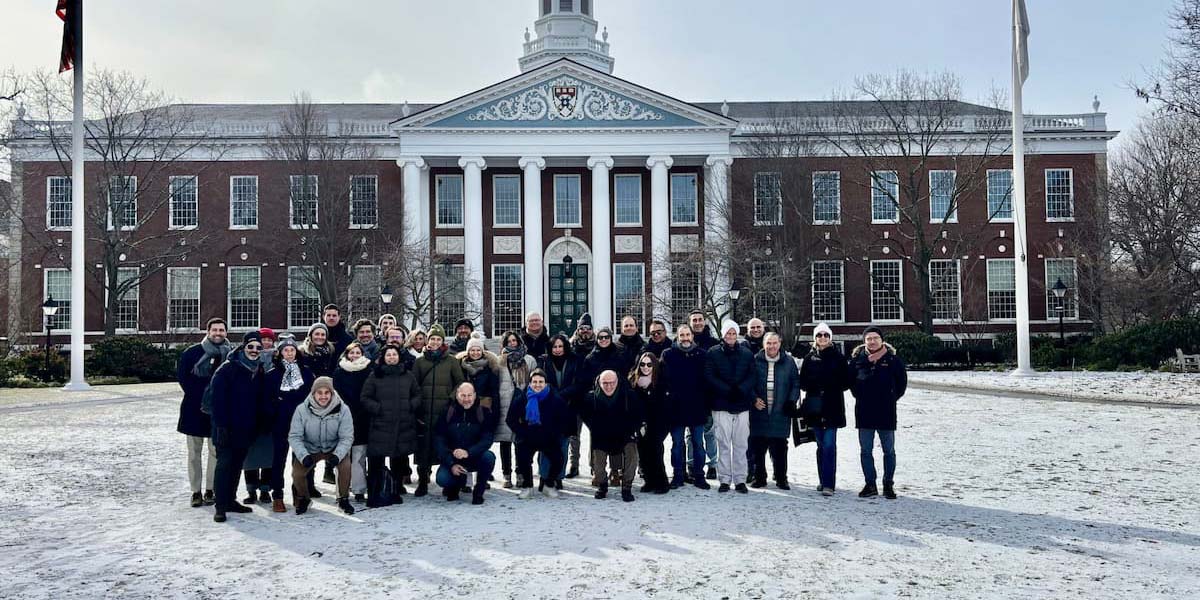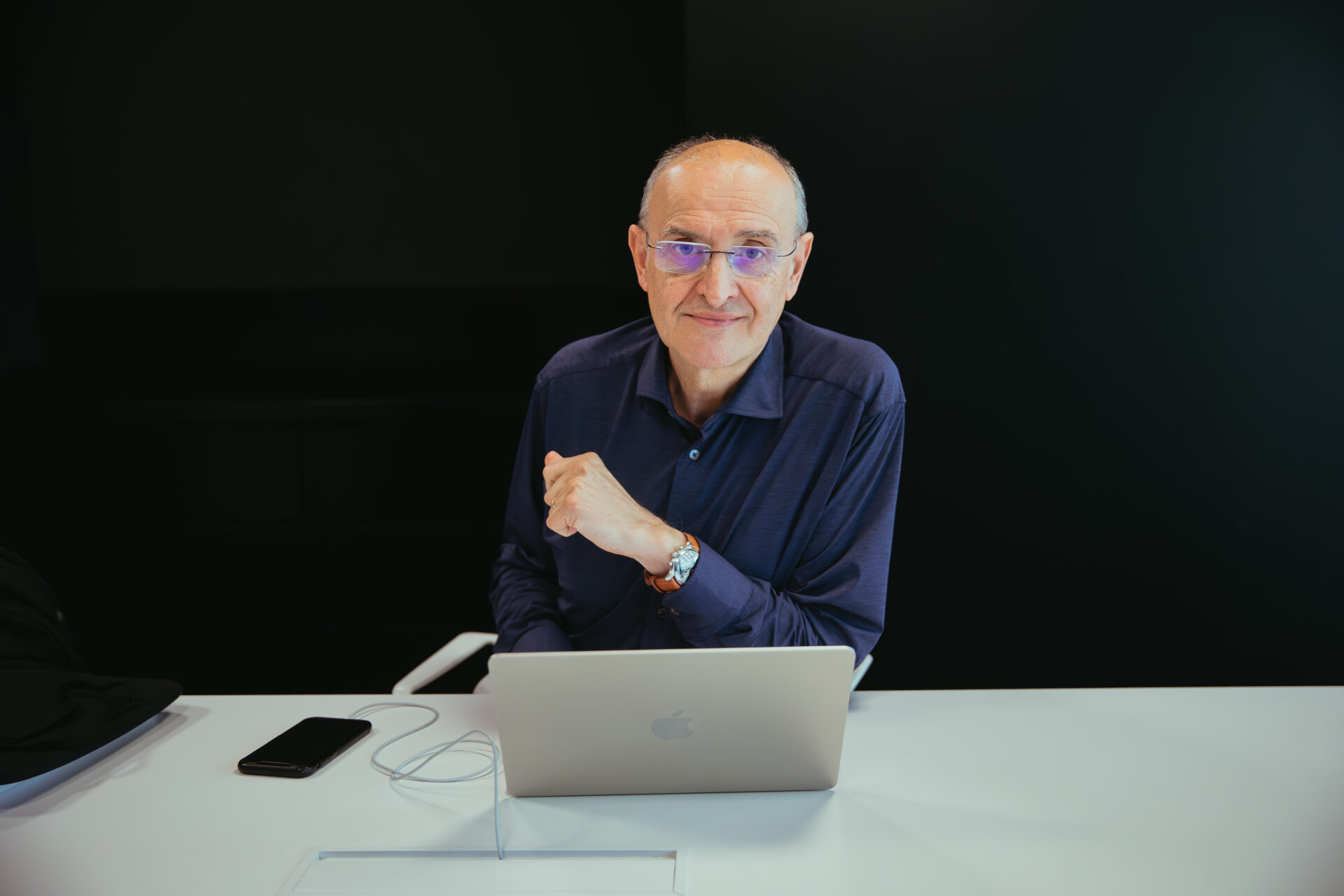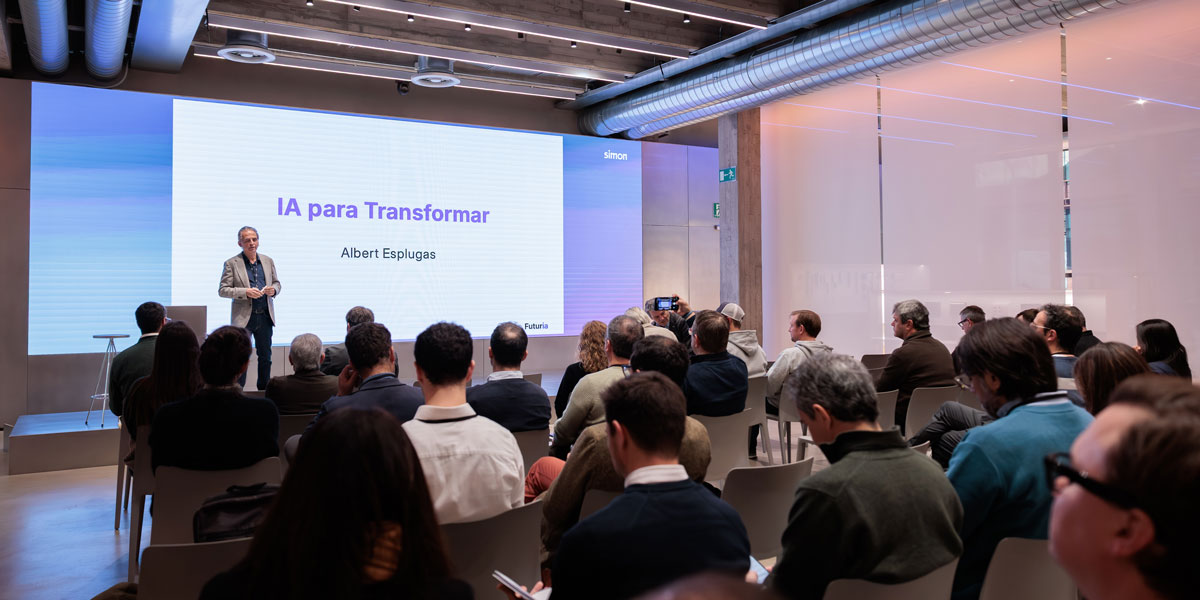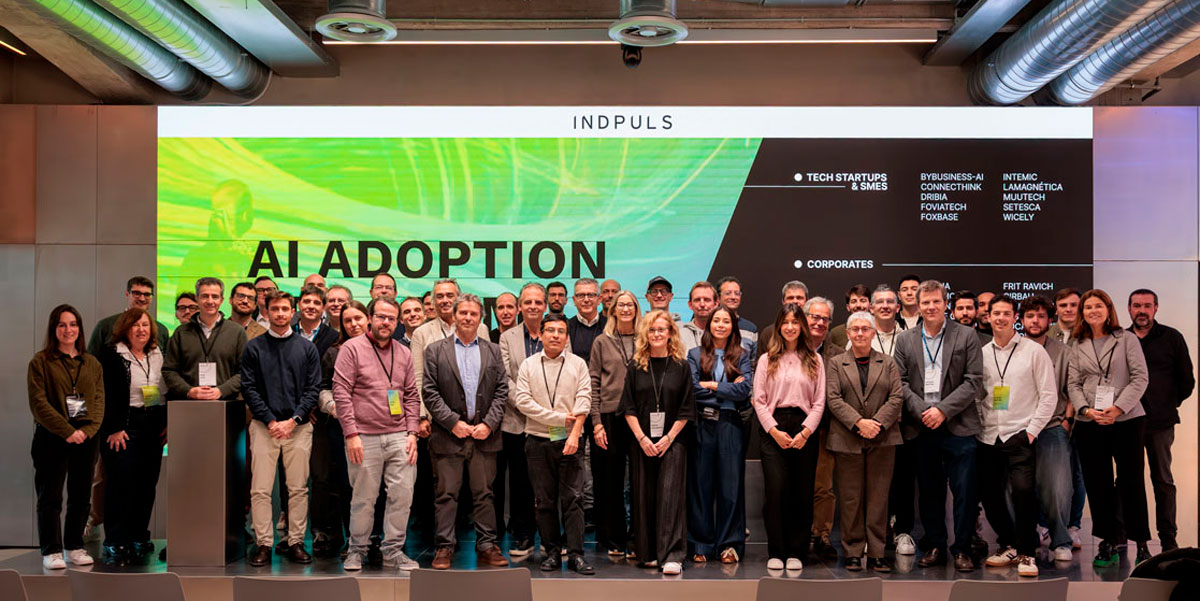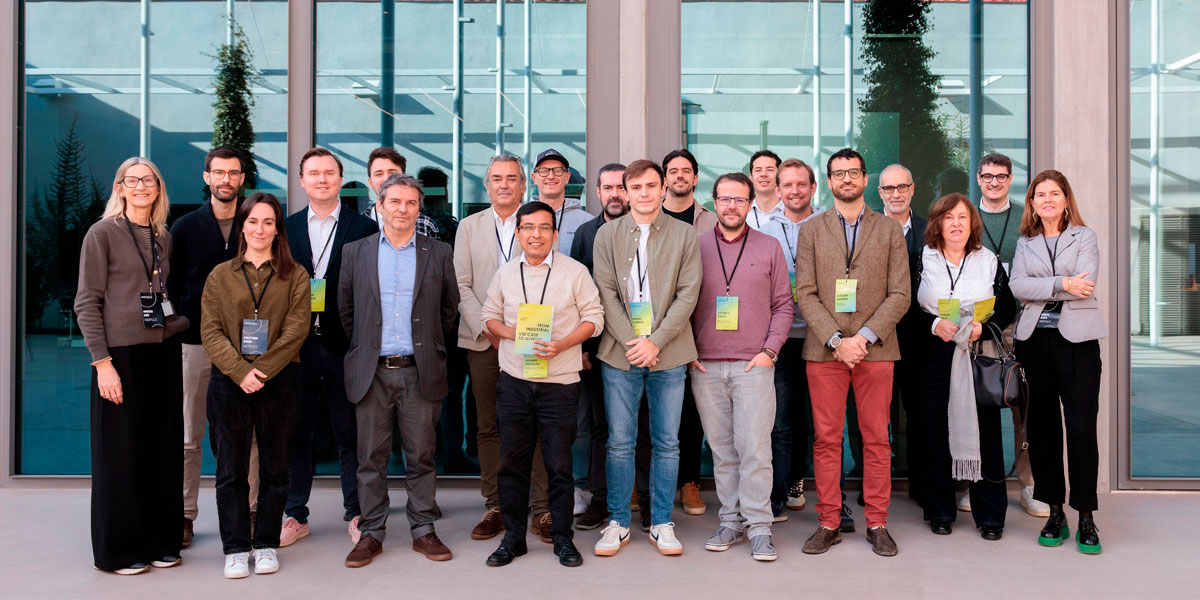Learnings from the second edition of the Boston Seminary on Strategy, Growth, and Innovation, organized by Lead to Change.
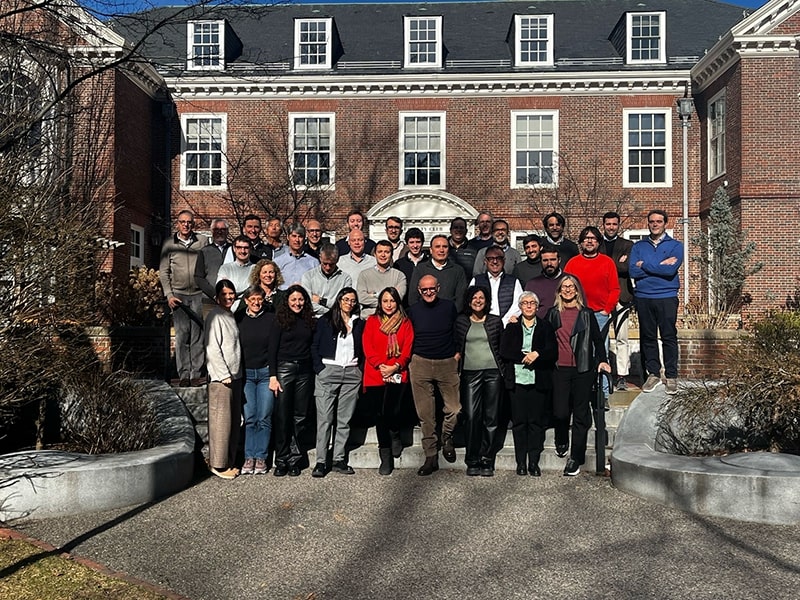
Chronicle by Mireia Mir, Director of INDPULS.

In February 2024, Lead to Change, the consulting firm chaired by Xavier Marcet, organized the second edition of the Boston Seminary on Strategy, Growth, and Innovation, which was attended by thirty executives from companies in Europe and Latin America. A group of representatives from INDPULS had the opportunity to participate, and in this article, we share our experience: Mercè Girbau, President and CEO of Girbau, Josep David Alsina, CEO of Encofrados Alsina, Jesús Gómez, Business Development Director of Alsina, Albert Pérez, COO of Simon, and Mireia Mir, Director of INDPULS. On this occasion, we were also joined by the founders of the two winning startups from the INDPULS Startup Support Program, Mar Masulli, CEO of BitMetrics, and Eduard Aran, CEO of Valerdat. For them, it was a great experience to present their companies, receive feedback from attendees, and identify potential collaborations.
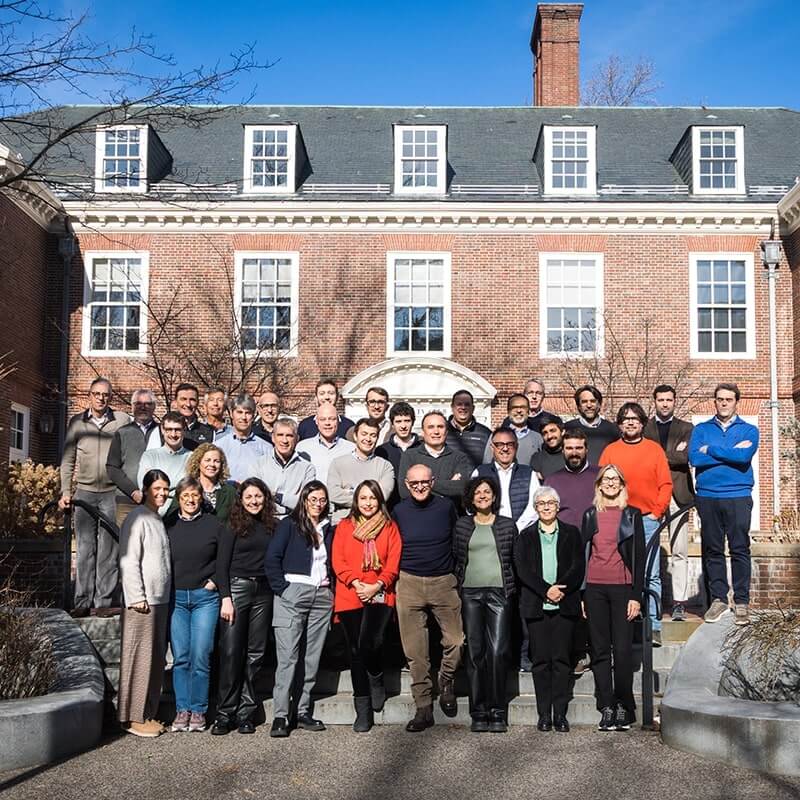
It was five intense days during which we could immerse ourselves in one of the largest Startup Ecosystems in the world – #5 according to Startupblink – and learn from top-notch speakers. Equally important were the connections forged among the participants, with whom we shared pleasant walks, meals, laughter, and enriching conversations. Soon, we will reunite and be able to share how we are implementing some of the learnings from Boston in our daily lives. Today, I will share some of them with you.
The Technologies That Will Define the Future of Our Companies, with Jordi Albó.
Jordi Albó, founder of Lighthouse-DIG and co-creator of the Boston Exponential Hub at the MIT Media Lab, reminded us that to innovate, one must be tolerant of imperfection. Innovation is a journey into the unknown. If we are not spiritually calm in the face of error, stress appears and hinders exploration. Regarding Artificial Intelligence, he clarified that it will ultimately be regulated by mechanisms similar to the evaluation and authorization of medications.
“We had the opportunity to share a session with Jordi Albó, one of the references in innovation at MIT, which made me feel very fortunate because we are in the mecca of technological innovation, sharing experiences and seeing that the technological language we speak in Barcelona is suitable and what we need to work on to build an ecosystem. What is being forged here today is one of the major steps that must be taken.” Mar Masulli, founder and CEO of BitMetrics, a startup in the INDPULS ecosystem.
In this sense, one of our partners, Albert Pérez, COO of Grupo Simon, explains, “My vocation is to transform organizations from within by growing people. For this, innovation is significant. If we continue doing things the same way, we will not get different results. From that perspective, innovating, experimenting, making mistakes, and iterating are the most appropriate exercises to progress. All this is part of a different, human, fresh corporate governance. It is the most efficient and professional way to drive company changes and transformation forward.“
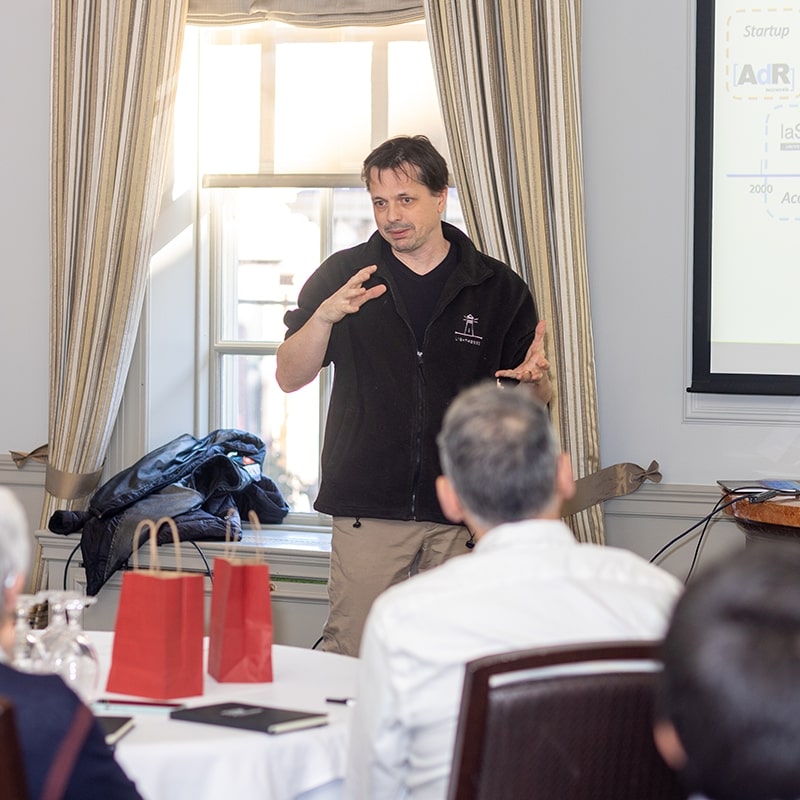
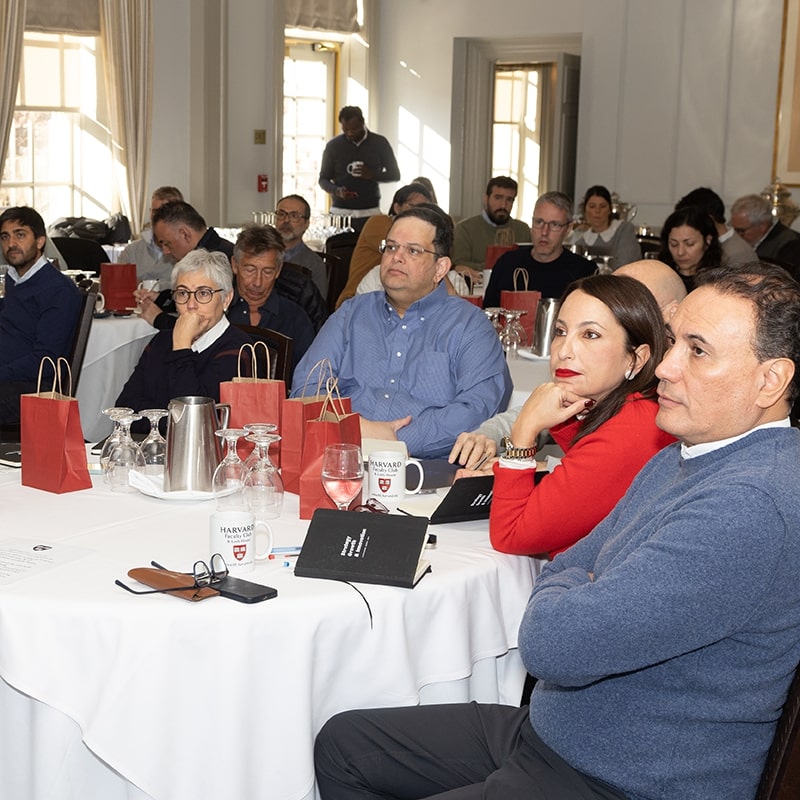
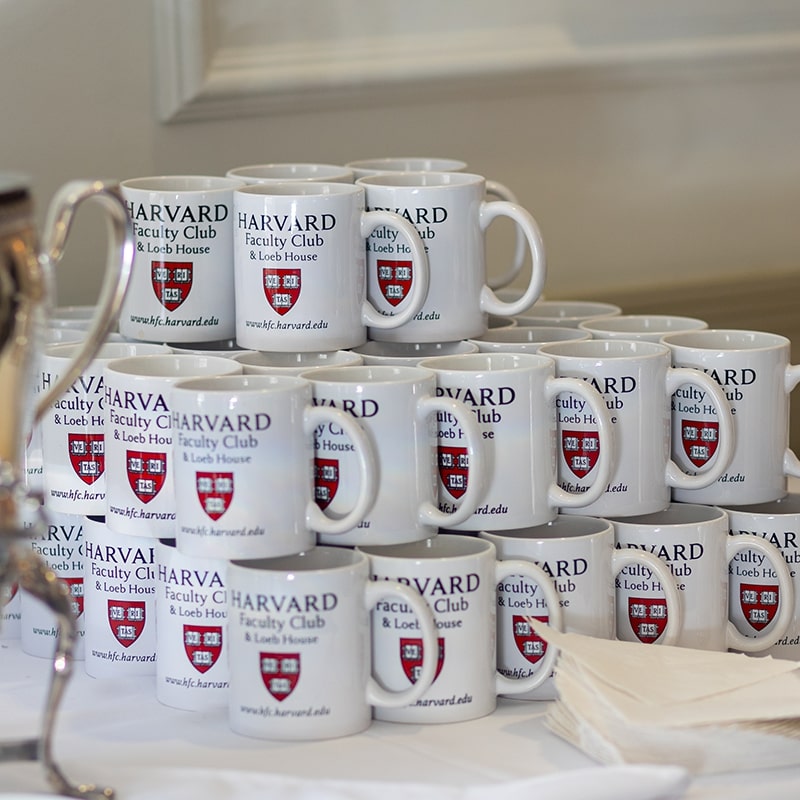
The MIT ecosystem and the relationship between university and industry, with Eduardo Garrido.
We met with Eduardo Garrido, director of the MIT Corporate Relations program, to learn more about the MIT innovation ecosystem and understand the relationship between the university and industry. MIT has five schools, one college, over 65 centers, labs, and programs, 1080 professors, 4000 researchers, and 12000 students. It has reached 1800 patents in the last five years, far above any other university worldwide. A differential factor of MIT students is that they believe that everything is possible without necessarily having to be the brightest. To help us understand all this, Garrido offered us a guided tour of the main MIT buildings.
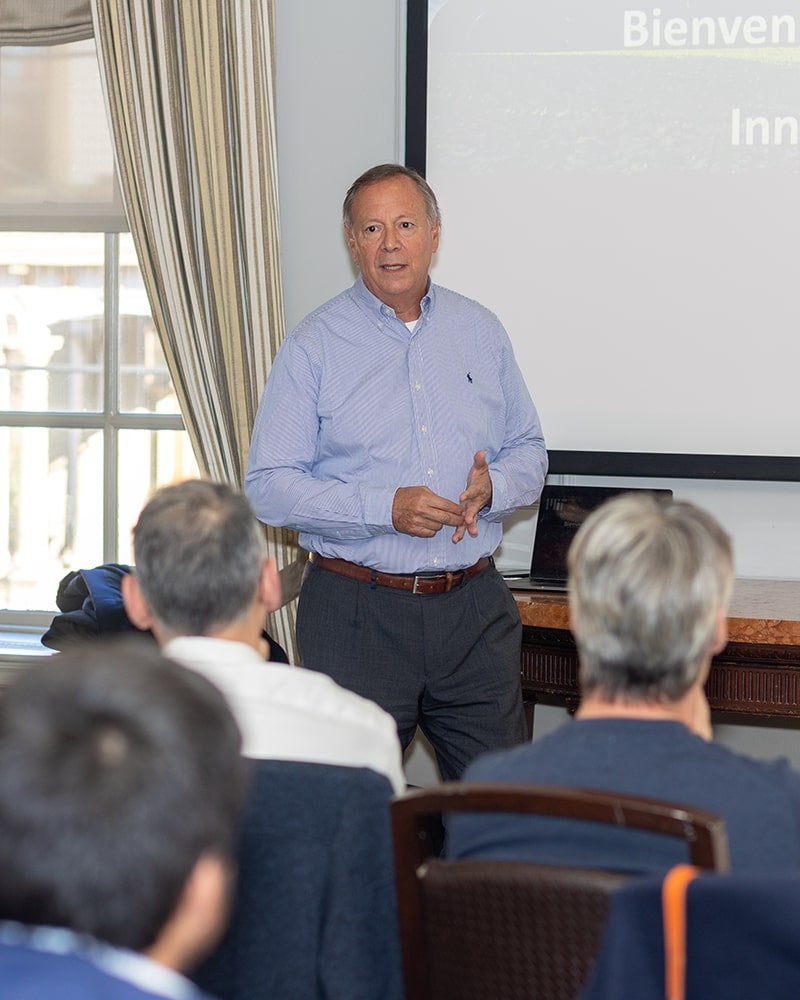
“Happy to be able to step out of my day-to-day, out of my daily actions in management, and to open my mind with the experience I am having here. The differential factor of this course, and what is especially providing for me, is, above all, the environment, which is completely different—understanding the philosophy behind these schools, universities, and technological centers, which are leading for some reason. Understanding the relationship between companies and universities in this ecosystem tremendously inspires me. I want to thank LTC for the organization because it’s been spectacular,” said Josep David Alsina, CEO of Encofrados Alsina.
We also explored the universe of quantum computing with Parfait Atchadé, director of business strategy at Lighthouse-DIG, who offered us a delightful session to understand the potential of this technology and the importance of managing the large volume of data generated by our companies for decision-making. I’m left with his phrase, “Without data, there is no paradise.”
Jay Rao, a professor at Babson College, stirred us all with his session on culture and innovation. He doesn’t beat around the bush when he asserts that, as executives, we must protect entrepreneurial leaders from the gorillas of our organizations. And how right he is! Without entrepreneurial leadership, there is no innovation or culture. And in turn, culture can kill strategy and innovation and eliminate entrepreneurial leaders.
The director of the MIT Innovation Teams Program, Luis Pérez-Breva, spoke to us about the different innovation models. He shook us by questioning ideas that we had very much assumed. As he argues: the significant complexity in innovation is wanting to predict the place we should go, when what we should do is create those places.
Mercè Girbau, president and CEO of Girbau, comments that “Listening to Pedro Pons, Senior Vice President of Finance and Corporate Controller at Estée Lauder, speaking about strategy and transformation, has allowed us to contrast our way of understanding some operations such as company integration and M&A. We have also enjoyed a masterclass taught by Ramon Casadesus-Masanell, with Harvard’s methodology, experiencing it on Harvard’s campus. It has given us strategic analysis tools to differentiate ourselves and maximize our competitive advantages.”
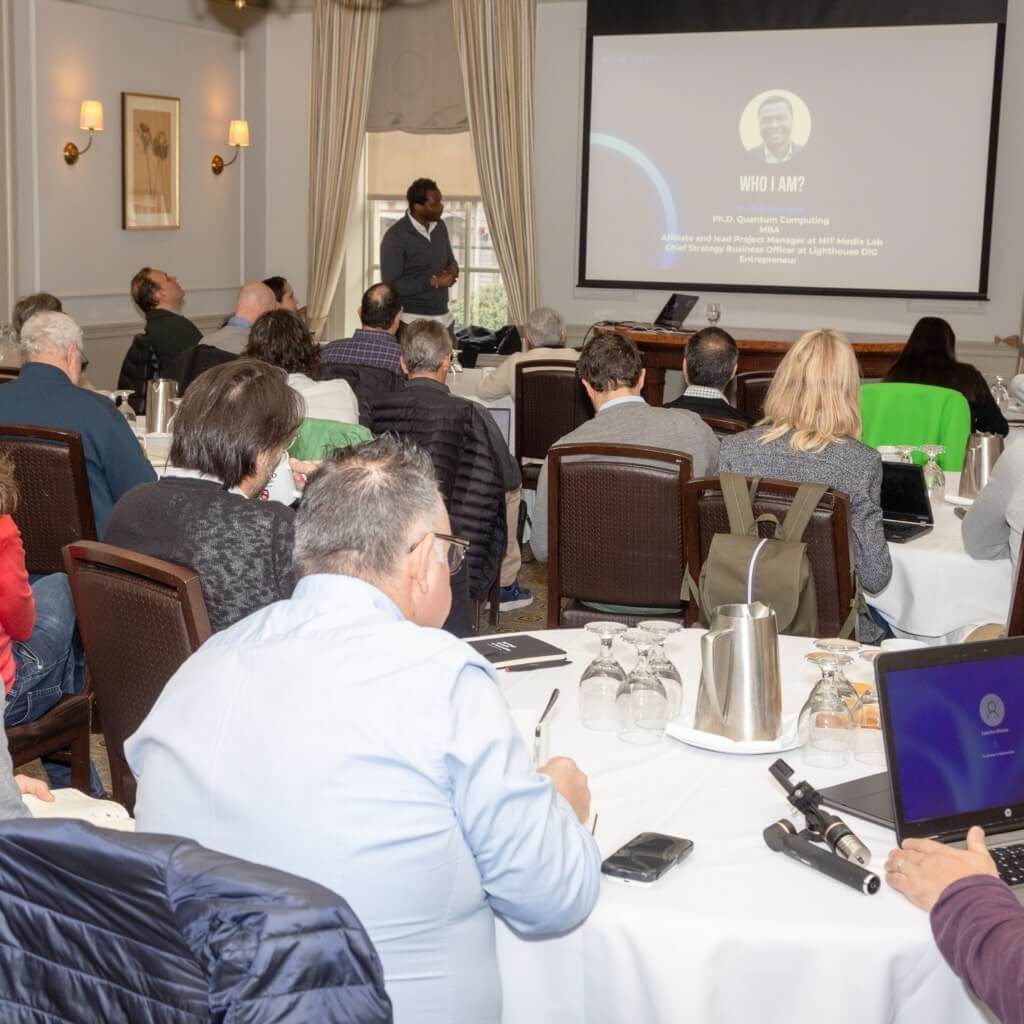
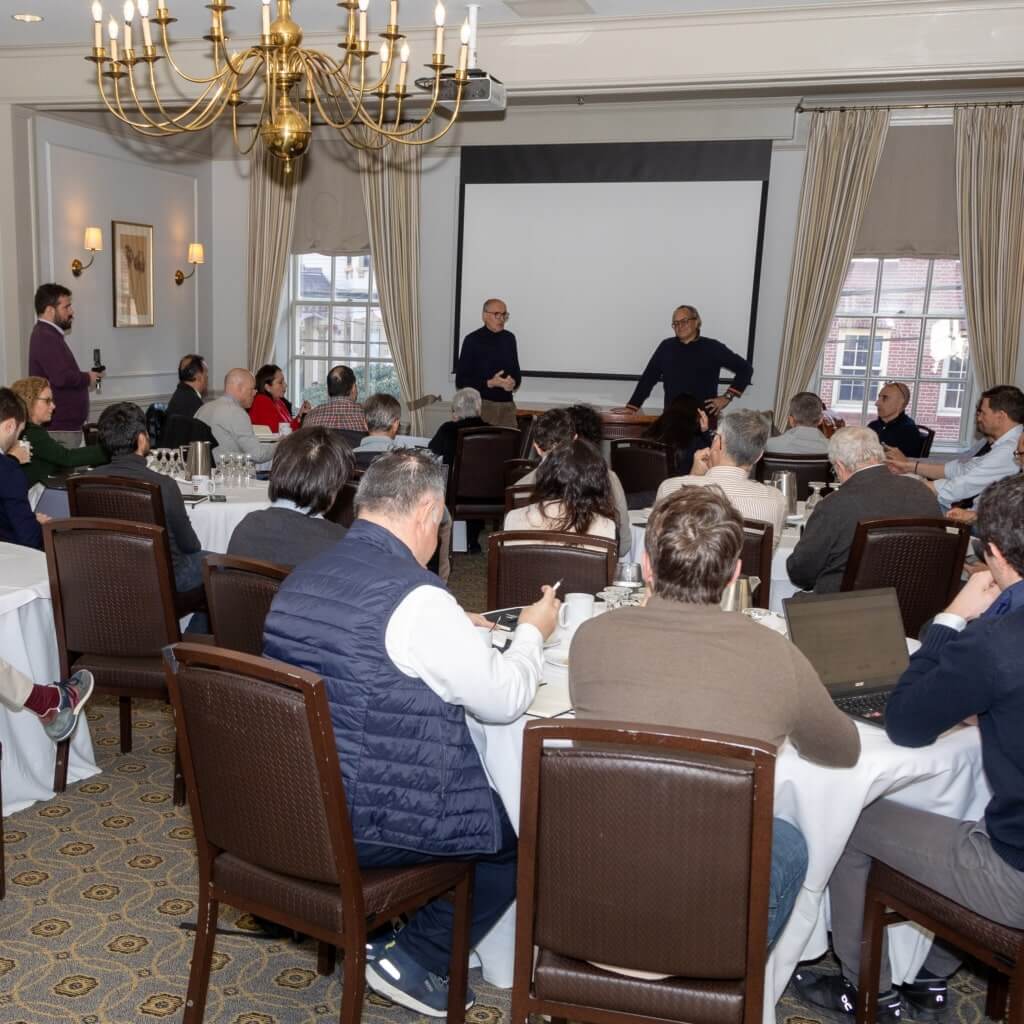
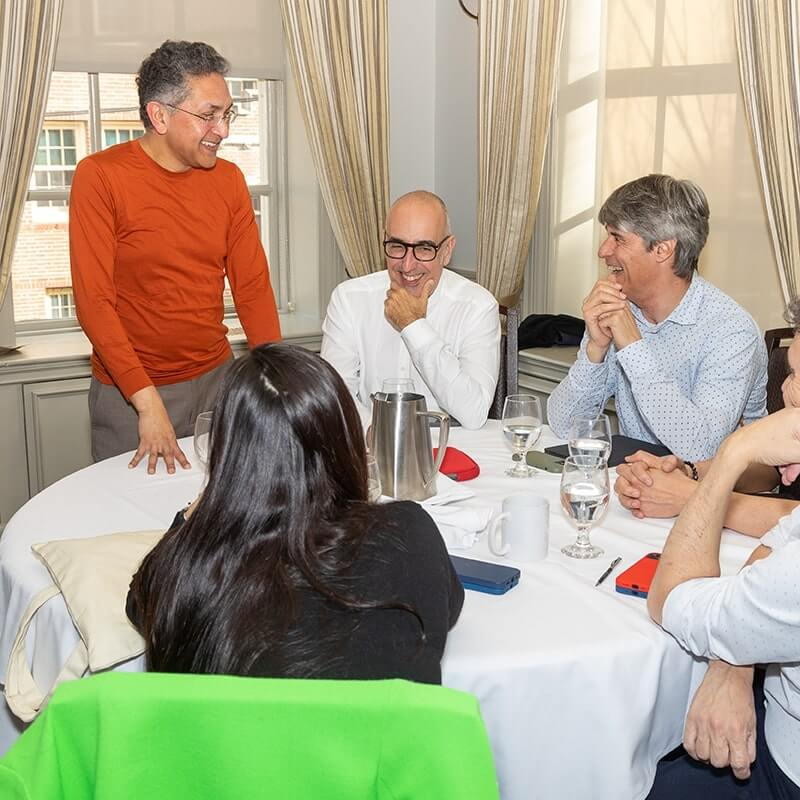
Humanistic management, the art and technique for delivering results, with Xavier Marcet.
And we arrived at the last session with Xavier Marcet, president of Lead To Change, who made us reflect on humanistic management, the art, and technique to deliver results, but not in any way. In the era of Artificial Intelligence, we don’t just need knowledge workers anymore, we need thinking workers, people who don’t take refuge in mimicry or the answers offered by technology. The primary skill of the Knowledge-thinking worker must be to think because that brings uniqueness.
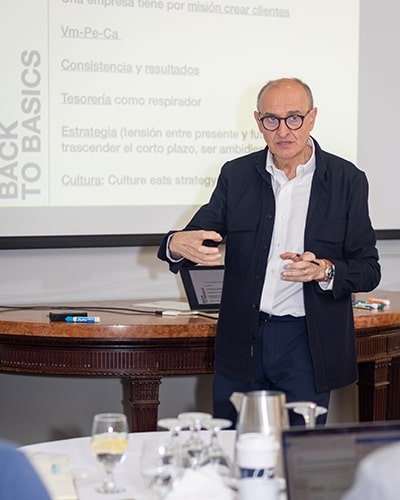
Xavier Marcet concluded his intervention with 5 key propositions:
- Agendas full of meaning.
- Leadership is the ability to influence and grow others.
- Wisdom is the sum of knowledge and humility. It’s not enough to have experts.
- We have an overdose of purpose, but what’s truly relevant is the legacy.
- You don’t start from simplicity; you achieve simplicity.
Once again, thank you very much to all the people who have made this experience possible.
Mireia Mir, director of INDPULS
